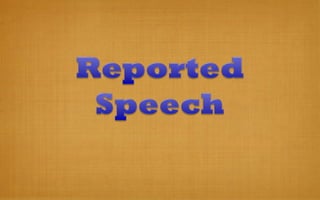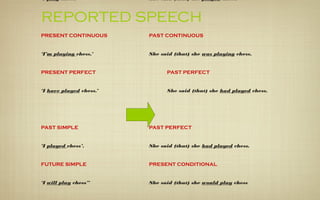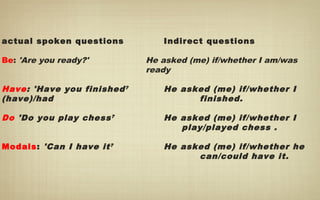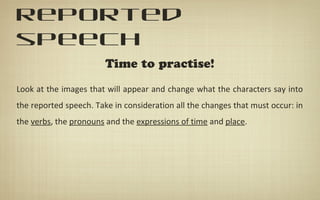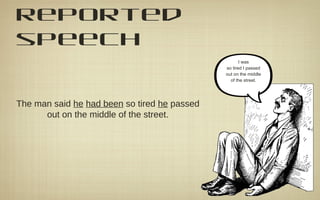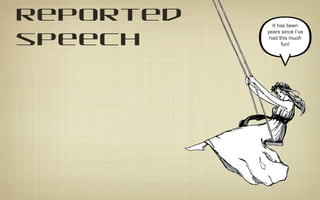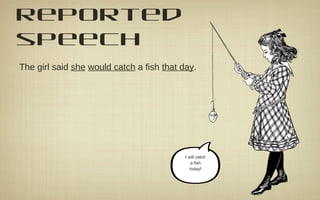Here are the reported versions:
The Jones family said that they had had a wonderful time on their holiday. They said the weather had been beautiful and they had visited many interesting places. The children said they were sad to be back home.
The tourists asked the tour guide when the next tour would start. They also wanted to know how long the tour would last and what places they would visit. One of them asked if they could take photographs inside the museum.
